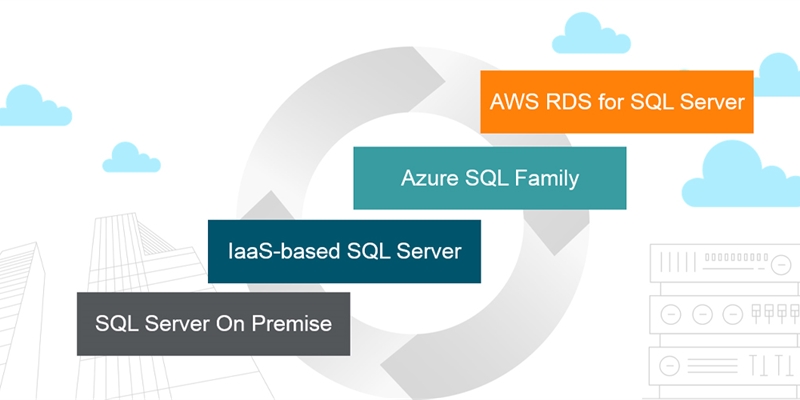Quest Software is excited to announce our extended Spotlight® Cloud offering which will deliver deep performance diagnostics to both on-premises and cloud SQL Server environments from a single, innovative SaaS platform.
Background
Two years ago, we announced Spotlight Cloud, a platform that initially delivered deep diagnostics for on-premises and IaaS-based SQL Server environments. It offered deep diagnostics out of the box, which we will cover later in this post.
We are happy to announce new additions to the Spotlight Cloud family which include two of the most popular cloud databases in the market:
- Azure SQL Managed Instance
- AWS RDS for SQL Server
These new cloud database platforms are key in serving market needs, as we see more and more of our customers moving to the cloud. According to Gartner, by 2022 75% of all databases will be deployed or migrated to a cloud platform, with only 5% ever considered for repatriation to on-premises.
With these new supported platforms, Spotlight Cloud becomes the world’s first SaaS platform to deliver deep diagnostics for hybrid SQL Server Environments.
Azure SQL Managed Instance
Azure SQL Managed Instance is part of the Azure SQL DB family that also includes Single Databases and Elastic Pools. It is a shared set of resources for system and user databases. Azure SQL Managed Instance became the most popular Azure SQL DB deployment of the three Azure SQL DB options because it offers the least amount of friction when converting/migrating from on-premises.
Microsoft claims that the Managed Instance model has near 100% compatibility with SQL Server’s Enterprise (on-premises) edition. The enormous benefit of this is that application and database development and configuration changes are kept to a minimum. Microsoft even offers (Data Migration Service that can automate this “lift and shift” process from on-premises and/or an IaaS implementation to the DBaaS deployment.
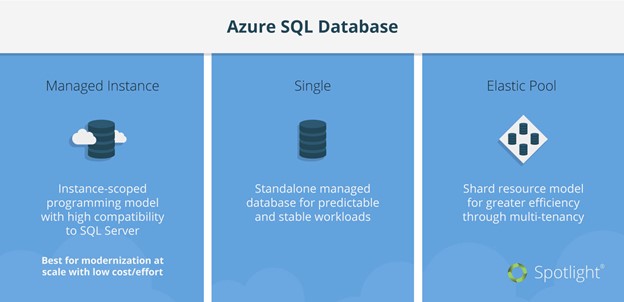
AWS RDS for SQL Server
Amazon Relational Database Service (RDS) is a family of several relational DBaaS options including SQL Server, Oracle, MySQL, PostgreSQL and Amazon Aurora.
Similar to Azure SQL Managed Instance, Amazon RDS for SQL Server provides near 100% compatibility with the on-premises SQL Server edition. It is a great option for customers looking to lift and shift their on-premises SQL Server workloads to a fully managed and scalable cloud services under AWS.
Spotlight Cloud Coverage for Azure SQL Managed Instance and AWS RDS for SQL Server
With access to all alerting and diagnostics dashboards as for all SQL Server versions, you will be able to detect problems quickly, perform root cause analysis and discover bottlenecks in your production environment. Identify issues in real time or review historical data that goes one year back.
Here are some of the key features available with this new Spotlight Cloud release; not just for on-premises and IaaS-based SQL Server instances, but now for Azure SQL Managed Instance and AWS RDS for SQL Server as well:
Heatmap Global View
Once you add a new Azure SQL Managed Instance or AWS RDS for SQL Server connection, you’ll immediately see its status as part of the heatmap global view. You can filter the heatmap to view only specific connection types in the left-hand Connections pane, as follows:
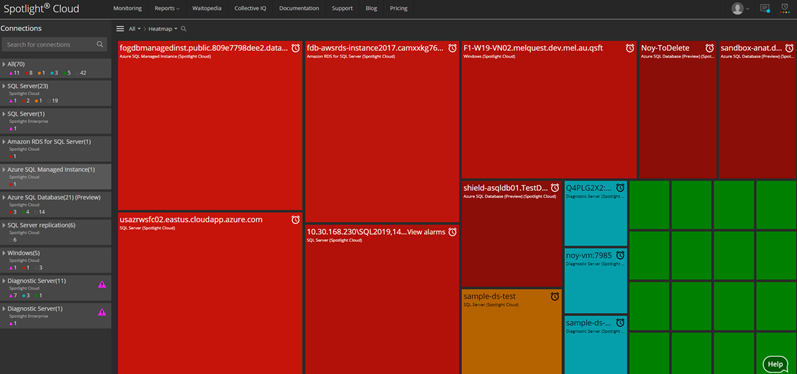
Workload Analyzer
With workload analyzer, database professionals can easily visualize their workload activity to quickly identify the root-cause of performance issues. Using Spotlight Cloud’s performance tree, users can investigate database performance metrics and wait events across multiple dimensions, including statements, batches, users, programs, machines and more. The following screenshot illustrates how you can perform both real-time and historical analytic performance investigations by slicing and dicing your database workload into various dimensions.
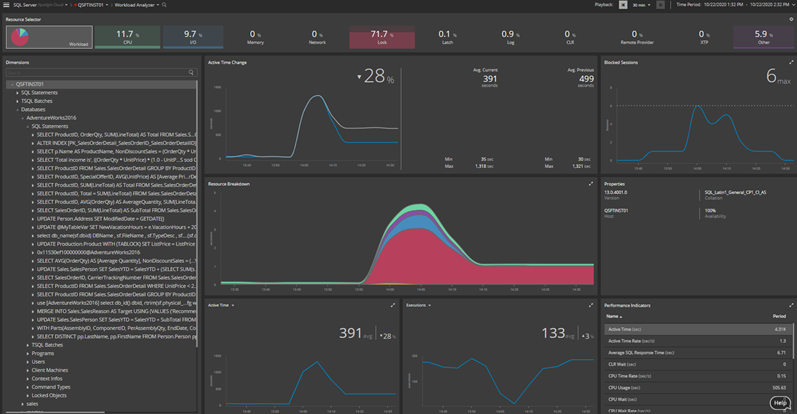
Deadlocks
With Spotlight Cloud SQL Server Deadlock Analysis, you can access all the performance data required to identify and resolve deadlocks and improve your database performance.
The Deadlock Analysis dashboard in Spotlight Cloud shows a complete view of deadlocks in your SQL Server environment. Here, you can view all the processes and resources impacted by the deadlock in a single screen. See a summary of how many deadlocks occurred within a specific time frame, the amount of time each process lost as a result of the deadlock, the associated SQL and which processes became victims of the SQL Server deadlock resolution.
Note: Deadlock analysis feature is currently available for on-premises, IaaS-based SQL Server and Azure SQL Managed Instance. It is on our roadmap plans to add deadlock analysis for AWS RDS for SQL Server.
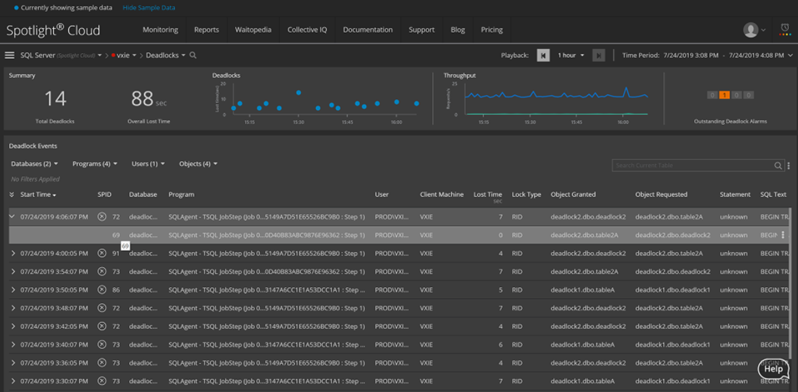
Mobile App
Our mobile app now also supports push-notifications received for alerts that may come from Azure SQL Managed Instance and AWS RDS for SQL Server environments.
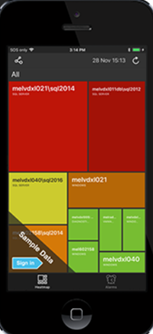
Smart Alarms
Spotlight Cloud delivers over 200 out of the box smart alarms that help database professionals diagnose and resolve complex database health issues.

Other Notable Spotlight Cloud Features
Licensing/Pricing
Both Azure SQL Managed Instance as well as AWS RDS for SQL Server connection, will be priced as regular, on-premises, SQL Server instances, that is $120/month. With this pricing you will also get monitoring for the underlying operating system (Windows and Linux), underlying VMWare, Hypervisor, and SQL Server Replication.
Summary
Azure SQL Managed Instances and AWS RDS for SQL Server are two of the most popular cloud databases in the market and we are seeing an increasing demand from our customers to address challenges related to cloud database performance. Furthermore, performance management in the cloud is closely related to cost management, and by improving cloud database performance, companies will essentially have the opportunity to reduce their cloud expenditure.
We are looking ahead as we continue to add more powerful and unique capabilities Spotlight Cloud. We expect to support additional database platforms, both on-premises and in the cloud to address the market and our customers’ needs.


